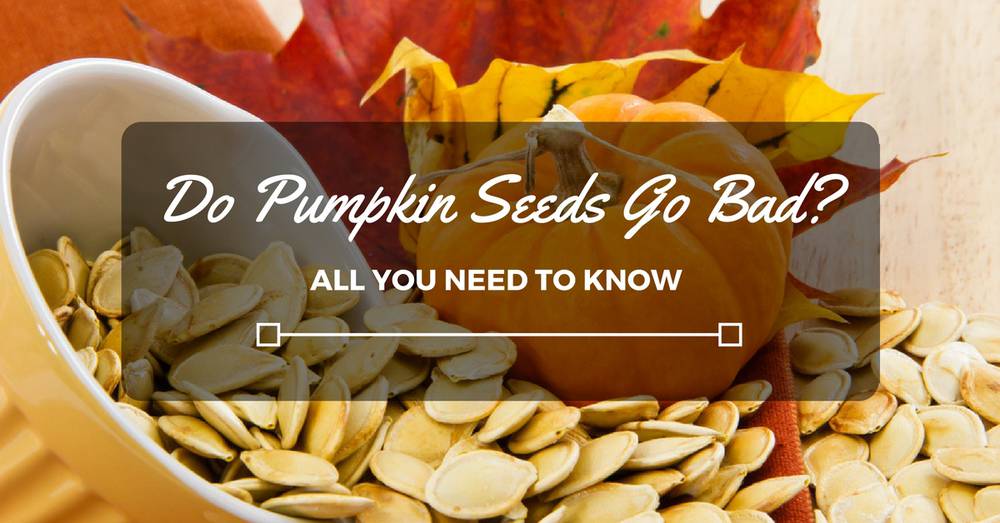Pumpkins make for a great pie or a scary jack-o-lantern, but what some people might not know is that you can actually keep pumpkin seeds and roast them a little bit for a healthy snack.
Pumpkin seeds are great to snack on since they contain lots of nutrients that can be very good for your body.
However, just like any other perishable good, pumpkin seeds do go bad despite keeping them in proper storage.
If you want to know some useful information about pumpkin seeds, and how to store them properly for later use, do read on to find out more.
Health Benefits Of Pumpkin Seeds
Like I have mentioned before, pumpkin seeds make for a great snack since they are filled with nutrients. If you are not familiar with the health benefits of pumpkin seeds, here are some effects that they could have on your body:
Improved Heart Health

¼ cup of pumpkin seeds already amounts to 50% of the recommended daily dosage of magnesium.
And since magnesium has been proven to enhance blood pressure and prevent risks of heart attacks, eating pumpkin seeds every now and then can help you have a healthy heart.
Enhanced Immune System

Zinc is another nutrient that is found in pumpkin seeds. An ounce of pumpkin seeds contains about 2 milligrams of Zinc.
What’s great about this, is that zinc has been known to improve the body’s immune system, prevent diabetes through insulin regulation, increase male sexual functions, enhance cell growth and cell division, and even improve your senses such as smell, eyesight, and taste.
Great Sleep

If you eat a bunch of pumpkin seeds a couple of hours before you go to sleep, the tryptophan amino acids found in the seeds will increase the sleep hormones in your body. Therefore, leading to a good night’s sleep.
Anti-Inflammatory Properties
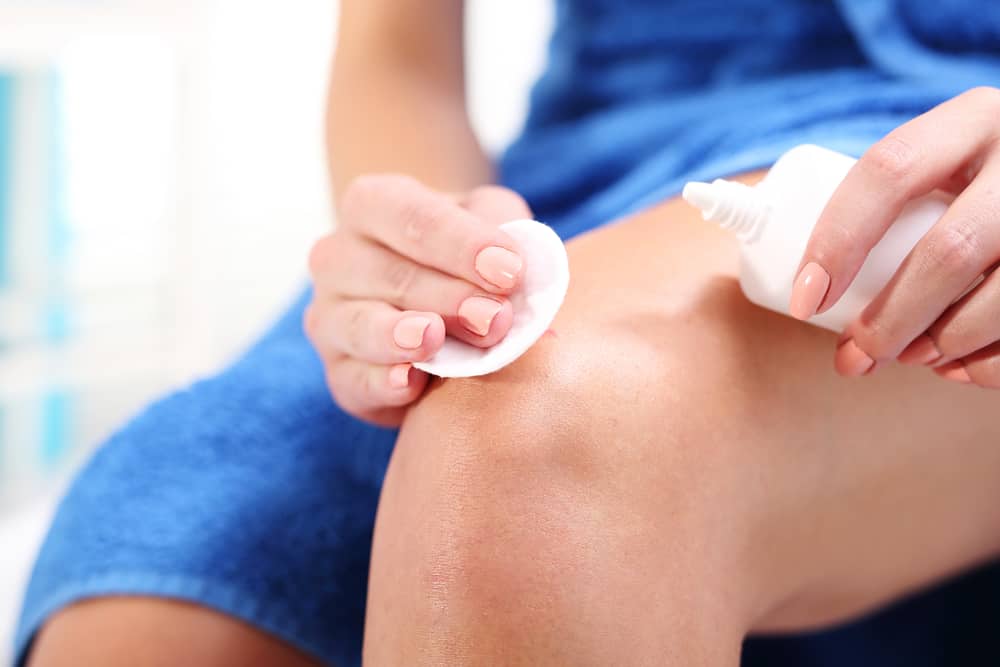
Pumpkin seeds also make for a great anti-inflammatory. A study has even proven that pumpkin seeds actually work well with treating arthritis.
Negative Side Effects Of Pumpkin Seeds
Despite the number of health benefits that pumpkin seeds have on your body, there are also negative side effects that can take place when you ingest them. Here are some unfavorable side effects you may experience when you eat pumpkin seeds:
Indigestion
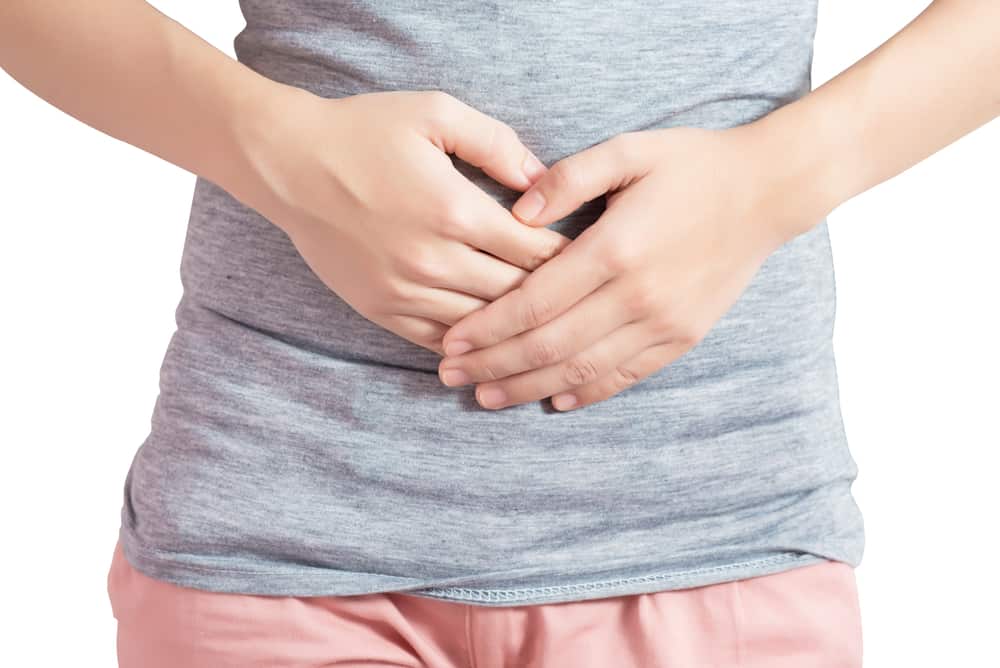
Pumpkin seeds can be a bit difficult to break down. It contains insoluble fiber that can lead to indigestion.
If you are eating pumpkin seeds, you should make sure to chew them carefully to make it easier for your body to digest. This piece of advice is specifically intended for whole seeds that often come with though skins.
Irregular Bowel Movements

If eaten in large amounts, pumpkin seeds can cause gas, diarrhea, and even constipation. Pumpkin seeds contain a lot of fiber, so if you ingest too much, you might end up with either watery stools, or backed up bowels because of constipation.
Storage Life Of Pumpkin Seeds
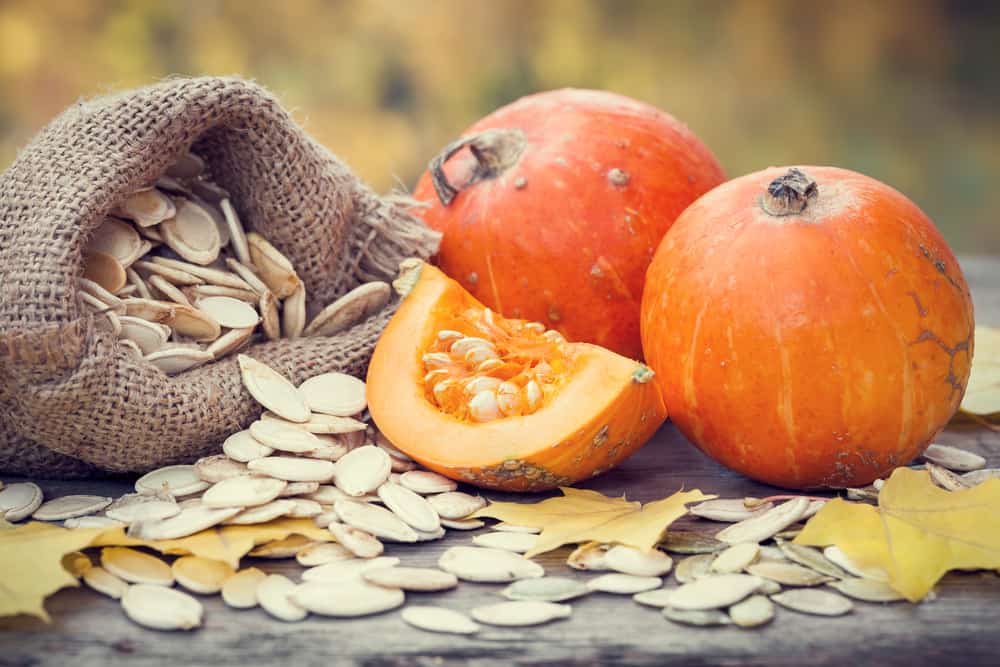
The shelf life of pumpkin seeds can differ depending on how you store them and how you got them. Raw pumpkin seeds for one, that is made through roasting fresh seeds can last for at least 2 months when refrigerated in an air tight container.
Store bought pumpkin seeds on the other hand, can last up to 3 months when stored in a container that is put in the pantry. If refrigerated or frozen, store bought pumpkin seeds can last for about a year.
However, even though you have stored your pumpkin seeds properly, you must still check for signs of spoilage such as unfavorable odors before you go and eat them.
How To Properly Make And Store Pumpkin Seeds
Making your own batch of pumpkin seeds can be very easy. Just follow these simple steps:
Step 1: Gather the seeds from a pumpkin by using a strainer as you rinse out the seeds from your pumpkin.
Step 2: Roast the pumpkin seeds you have collected and make sure that the seeds are completely dry and toasted.
Step 3: Let your pumpkin seeds cool.
Step 4: Put your pumpkin seeds in an airtight container.
Step 5: You can now refrigerate your toasted pumpkin seeds for up to two months.
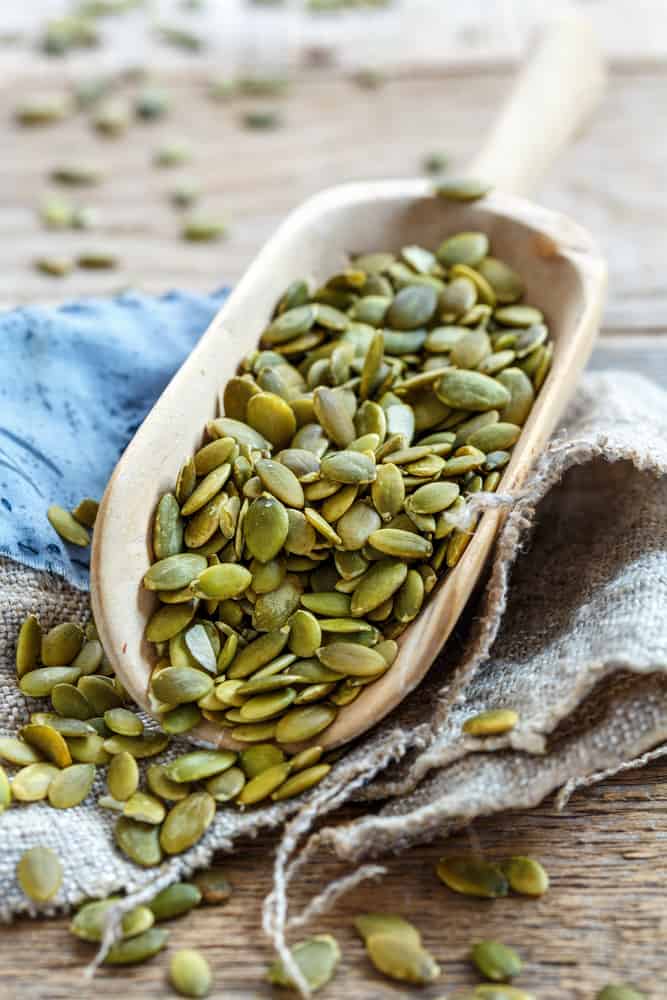
A Quick Recap
Pumpkin seeds are great and healthy snacks that you can easily make at home. If you decide to make a batch of pumpkin seeds for later, remember that you can always keep them fresh by putting them in an airtight container and by refrigerating them.
Also note that keeping your pumpkin seeds in the fridge will only be good for up to two months. Lastly, you should never forget to check for bad odors that signal spoilage before you eat your pumpkin seeds.
If you liked this article, and would like to know more about other food, please leave us your feedback in the comment box below. Until next time, enjoy!

